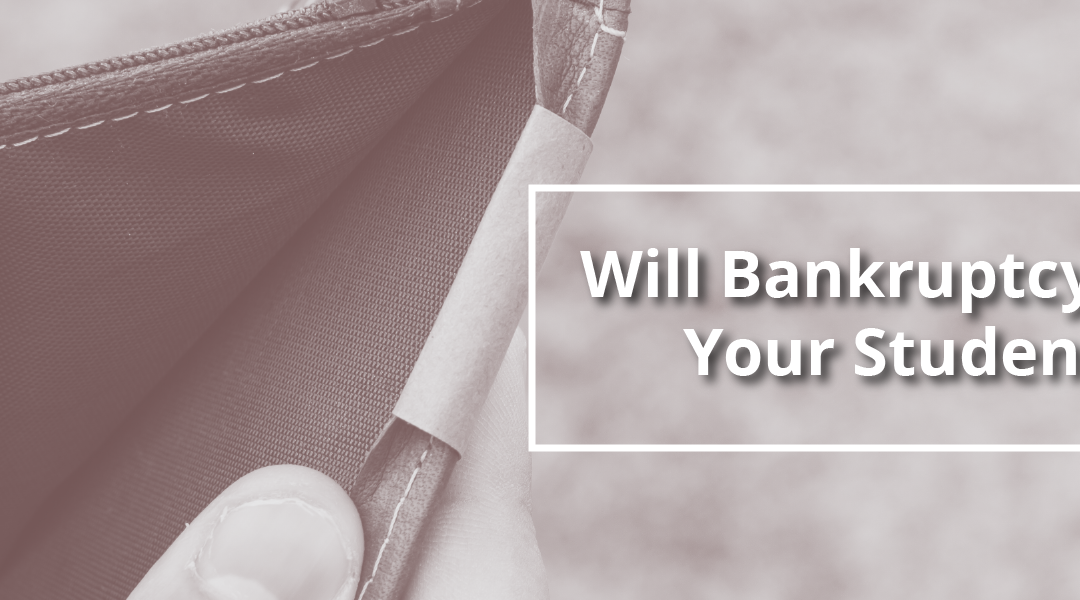It’s a common notion that bankruptcy won’t clear student loan debt, however there are some states relaxing that stance and even rumors that lawmakers will make it easier to discharge student loans in bankruptcy. In fact, some bankruptcy lawyers argue that the legal code surrounding bankruptcy and student loans is being misinterpreted.
Recently some bankruptcy courts have been discharging student loan debt. However, these are still only in extreme cases. Since student loans are granted without any collateral, it’s unreasonable to eliminate them in bankruptcy (your college education can’t be repossessed). Also, declaring bankruptcy won’t do you any good if you only have student loan debt. There are number of programs available to help federal student loan borrowers avoid default. That said, if you’ve accumulated significant debt in addition to your student loans, you may argue to have your loans discharged when you file for bankruptcy.
Only in rare cases will you be able to discharge federal student loans in bankruptcy
In order to have your federal loans discharged through bankruptcy, you must declare Chapter 7 (straight bankruptcy) or Chapter 13 (repayment plan case) and prove that repaying your student debt imposes “undue hardship” on you and your dependents. There are no set requirements to prove “undue hardship,” and courts will look at a number of factors including:
- if your repayment would prevent you from maintaining a minimum standard of living
- If your repayment will create a lasting hardship over a long period of time
- how much effort you’ve put into repayment before filing for bankruptcy
If the court determines that your student loans create undue hardship, your loan may be fully discharged, partially discharged, or the terms of your loan may be altered to make repayment feasible.
Bankruptcy should only be considered as a last resort
Bankruptcy will obliterate your credit score and remain on your record for as long as 10 years, severely limiting your ability to borrow money. If you file for Chapter 7, all of your possessions may be liquidated to pay your creditors. If you file for Chapter 13, you’ll be placed on repayment plan and may be allowed to keep your possessions. Either way, you won’t be able to obtain new lines of credit. It may even prevent you from getting a job.
Be aware that there are many fraudulent “debt consolidation” and “student loan forgiveness” companies that will charge fees to file free paperwork for you. Practice caution with any company that asks for money up front to remove your debt.
If you’re considering filing for bankruptcy, hopefully your student loan repayment isn’t the primary cause, especially if you have federal loans. Federal student loans have a number of plans and programs to help borrowers from defaulting on their loans. If you’re carrying serious debt beyond your student loans, your debt-to-income ratio will help you qualify for an income-driven repayment plan and your student loan payments could drop as low as $0.
IonTuition is an expert in the student loan repayment space and specializes in helping borrowers avoid bankruptcy.

